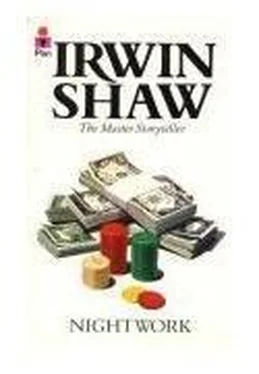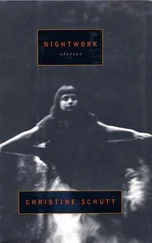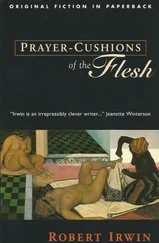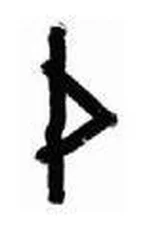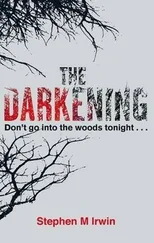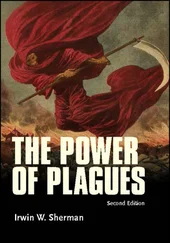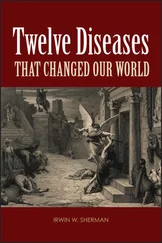Irwin Shaw - Nightwork
Здесь есть возможность читать онлайн «Irwin Shaw - Nightwork» весь текст электронной книги совершенно бесплатно (целиком полную версию без сокращений). В некоторых случаях можно слушать аудио, скачать через торрент в формате fb2 и присутствует краткое содержание. Жанр: Детектив, на английском языке. Описание произведения, (предисловие) а так же отзывы посетителей доступны на портале библиотеки ЛибКат.
- Название:Nightwork
- Автор:
- Жанр:
- Год:неизвестен
- ISBN:нет данных
- Рейтинг книги:3 / 5. Голосов: 1
-
Избранное:Добавить в избранное
- Отзывы:
-
Ваша оценка:
- 60
- 1
- 2
- 3
- 4
- 5
Nightwork: краткое содержание, описание и аннотация
Предлагаем к чтению аннотацию, описание, краткое содержание или предисловие (зависит от того, что написал сам автор книги «Nightwork»). Если вы не нашли необходимую информацию о книге — напишите в комментариях, мы постараемся отыскать её.
Nightwork — читать онлайн бесплатно полную книгу (весь текст) целиком
Ниже представлен текст книги, разбитый по страницам. Система сохранения места последней прочитанной страницы, позволяет с удобством читать онлайн бесплатно книгу «Nightwork», без необходимости каждый раз заново искать на чём Вы остановились. Поставьте закладку, и сможете в любой момент перейти на страницу, на которой закончили чтение.
Интервал:
Закладка:
That’s for sure, brother, I thought. But all I said was, “Yes.”
“That will be twenty-three dollars for the year. Do you wish to pay by cash or by check?”
“Cash.” I gave him a hundred-dollar bill. His expression did not change. Obviously, he thought that I looked like a man who might normally carry a hundred-dollar bill loose in his pocket. I took this as a good sign. The assistant, manager smoothed the bill carefully, with a churchly gesture, went over to a teller’s window to break the bill down into smaller denominations.
I sat relaxedly at the desk, touching one of the manila envelopes with the tips of my fingers. I hadn’t stuttered once all morning.
The assistant manager came back and handed me my change and made out a receipt. I folded it neatly and put it into my wallet. Then I followed the man down to the vault. There was a hygienical, almost religious hush there that made you hesitate to speak above a whisper. Stained-glass windows would not have been out of place. The parable of the talents. The vault attendant gave me a key and led me down a silent aisle of money.
With the three thick manila envelopes under my arm, I couldn’t help wondering how all the treasure lying in those locked boxes, the greenbacks, the stocks and bonds, the jewelry, had been accumulated, what sweat expended, what crimes enacted, through whose hands all those stones and all that luxuriously printed paper had passed before coming to rest in this sanctified cold steel cave. I looked at the attendant’s face as he used the two keys, his and mine, and pulled out a box for me. He was an old man, pale from his underground existence. He didn’t look as though he had ever speculated about anything. Perhaps such people were chosen for their lack of curiosity. A curious man would go mad here. I followed the attendant back to a little curtained cubbyhole with a desk in it, and the attendant left me there with my box, respecting the privacy of wealth.
I tore open the manila envelopes and laid the piles of bills in the box. I looked at the neatly stacked notes, trying without success to foresee what they finally would mean for me.
It was like looking at a huge engine, quiet now, but capable of sudden, brutal force. I closed the box with a decisive little click. I tossed the envelopes into a wastepaper bucket and went back along the row of safes with the attendant and watched him slide the box into my own slot. The attendant used both keys once more to lock the safe. I dropped my key into my pocket, said “Thank you,” to the man. “Have a good day,” courteous as any policeman. “Hah,” the man said. He hadn’t had a good day since he was twelve. I went up the steps and out onto the sunny, cold avenue.
Okay for today, I thought. Chemical Bank and Trust, with all my worldly goods I thee endow.
I walked home briskly and packed. Beside the small bag I had carried the money in, I had a flight bag and everything I owned fitted in, with room to spare. I left the old parka hanging in the closet. Whoever moved in next would need it more than I. Then I wrote a note to the landlord saying that I was giving up the apartment. I had no lease and was on a month-to-month arrangement, so there wouldn’t be any difficulties there. I folded the note and stuck it in an envelope and dropped the key in with the note. Downstairs I put the envelope in the landlord’s mailbox. Carrying the two bags, I left the building without looking back. I wouldn’t ever again have to worry about keeping warm at that particular address. I hailed a cab and gave the driver the name of a hotel on Central Park West. It was a neighborhood I had never lived in and had only rarely visited. Even with my night-time job and my reclusive habits, in my old neighborhood on the East Side there were bound to be people who had come to recognize me, my bookie, the bartender in the saloon around the corner I sometimes drank in, a waitress in a nearby Italian restaurant, others, who could point me out to someone who might come around making inquiries about me. Eventually, I knew, I would put a great deal more distance behind me, but for the time being crossing Central Park would have to do. But I didn’t want to flee blindly. I knew that I needed at least one day to think and plan. The hotel was a busy one, but middle-class and commercial, and not the sort of place a man who had entered into sudden wealth would choose to celebrate in.
I asked for a single room with bath, registered under the name of Theodore Brown, gave as my home address Camden, New Jersey, a city I had never visited, and followed the bellboy with the bags into the elevator. On the way up, I studied the man’s sullen, narrow face. He was young, but there was no trace of innocence in the guarded eyes, the tightly closed lips. It was a face designed specifically by nature for corruption. What wonders a man with a face like that could perform with a hundred thousand dollars.
In the room, which overlooked the park, the bellboy put the big bag in a chair, turned on the light in the bathroom, ostentatiously earning his tip.
“I wonder if you could do me a favor,” I said, taking out a five-dollar bill.
The bellboy eyed the bill. “Depends on what the favor is,” the bellboy said. “The management, don’t like whores coming in and out.”
“Nothing like that,” I said. “I’d just like to make a bet on a horse and I’m new in town and…” I had entered a new life, but I was taking some baggage along with me. Ask Gloria cantered out of the stables of my past.
The bellboy showed his teeth in what he imagined were an accommodating smile. “We have a house bookie,” he said. “I can have him up here in fifteen minutes.”
“Thanks.” I gave him the five-dollar bill.
“Very good of you, sir,” the bellboy said. The bill disappeared. “Do you mind telling me what you’re going to play?”
“Ask Gloria in the second,” I said. “At Hialeah.”
“It’s a fifteen-to-one shot,” he said. He was a student of the sport.
“So it is,” I said.
“Interesting,” he said. There was no doubt about what he was going to do with my five dollars. Dishonest as he was, he would live and die a poor man.
When he left the room, I loosened my tie and lay down on the bed, although I still wasn’t tired. Try money, I thought grinning, for that run-down feeling, that midmorning sag.
More and more, thinking these days is in the form of a television commercial.
The house bookie appeared promptly. He was a huge fat man in a rumpled suit, with three ball-point pens slipped into the breast pocket of his jacket. He panted when he moved and spoke in a high, almost soprano voice, surprising coming out of all that bulk. “Hi, pal,” he said as he came into the room. He looked around the room swiftly, taking everything in. He was a man prepared for ambush. Although he performed in daylight, he lived in the same world as the cop in the prowl car. “Morris said you were looking for a little action.”
“A little,” I said. “I like Ask Gloria…” I hesitated for a moment. “For three hundred to win in the second at Hialeah. The morning line has her at fifteen to one.” I had a peculiar. feeling of lightheartedness, as though I were in an open plane, without oxygen, and had suddenly climbed from the deck to twenty thousand feet.
The fat man took a creased sheet of paper from his pocket, unfolded it, ran a finger down it. “I can give you twelve to one,” he said.
“Okay,” I said. I gave him three bills.
The bookie took the bills, examined them closely, glanced briefly at me. I detected respect, a certain delicate wariness.
“My name is…” I started to say.
“I know your name, Mr. Brown. Morris told me,” the bookie said. He made a note with one of the pens on the sheet of paper. “I pay off at six o’clock in the bar downstairs.”
Читать дальшеИнтервал:
Закладка:
Похожие книги на «Nightwork»
Представляем Вашему вниманию похожие книги на «Nightwork» списком для выбора. Мы отобрали схожую по названию и смыслу литературу в надежде предоставить читателям больше вариантов отыскать новые, интересные, ещё непрочитанные произведения.
Обсуждение, отзывы о книге «Nightwork» и просто собственные мнения читателей. Оставьте ваши комментарии, напишите, что Вы думаете о произведении, его смысле или главных героях. Укажите что конкретно понравилось, а что нет, и почему Вы так считаете.
